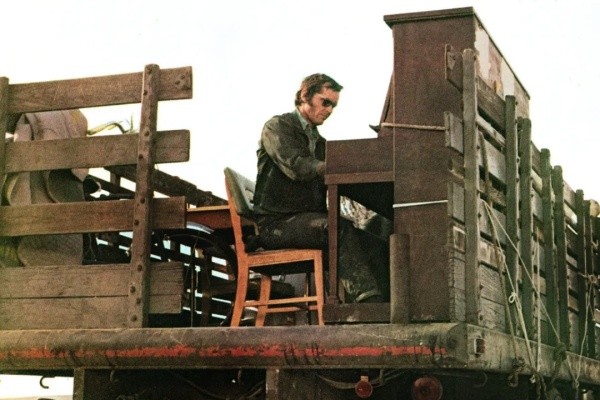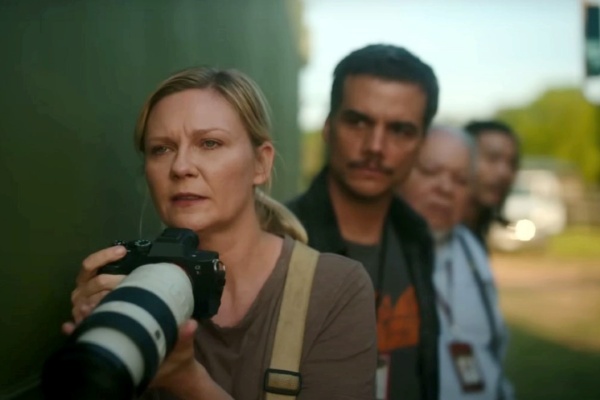Greek arthouse master Angelopoulos serves us one astonishing scene after another in this deliberately-paced elegiac road movie that also works as a powerful time capsule of late 1980s Greece.

Review #1,220
Dir. Theodoros Angelopoulos
1988 | Greece | Drama | 127 mins | 1.33:1 | Greek
PG (passed clean) for some mature themes
Cast: Michalis Zeke, Tania Palaiologou, Stratos Tzortzoglou
Plot: Young Voula and her 5-year-old brother Alexandros board a train from Athens bound for Germany, in search of their father, whom they have never met.
Awards: Won Silver Lion and FIPRESCI Prize (Venice); Won Interfilm Award (Berlin).
Source: Greek Film Centre
Accessibility Index
Subject Matter: Moderate – Loneliness; Siblings; Road Trip
Narrative Style: Slightly Complex
Pace: Slow
Audience Type: General Arthouse
Viewed: National Museum of Singapore – Perspectives Film Festival
First Published: 8 Oct 2015
Spoilers: No
As far as the works of Theo Angelopoulos are concerned, Landscape in the Mist is not just one of his finest, but possibly one of his most accessible.
It comes with its arthouse tag, but in all honesty, it is not at all ‘frustrating’ to watch, if that is your worry. It is deliberately-paced but promises a visually rewarding experience with an emotional story at its core.
Clocking at just two hours (some of his films run for nearly 3 or 4 hours), the Venice Silver Lion winner is structurally freewheeling as its child characters journey across a multitude of Greek landscapes, both urban and rural, with one aim in mind: to find their missing father in Germany.
Part of the reason Angelopoulos’ film is more appealing than expected is its focus on Alexandre and Voula. The child actors Michalis Zeke and Tania Palaiologou respectively give superb displays, with the director’s capture of the innocence of early youth transiting into a darker, more mature territory particularly haunting.
Yet there is enough subtlety for the story to work implicitly, as a soft counterpoint to the harsh landscapes. Along the way, the children are acquainted with a host of strangers, many of whom are affected by socioeconomic concerns, with some even harbouring ill intentions.
“Who am I? I’m a snail slithering away into nothingness… I don’t know where I’m going. Once I thought I knew.”
Everyone’s circumstance is dire, but the children remain most hopeful, even if their optimism foreshadows a deeper tragedy.
Angelopoulos’ use of location shooting is brilliant, almost Antonioni-esque in the framing of the human form against big, harrowing, even ghastly, buildings and machines ala Red Desert (1964).
He also shows us heart-achingly beautiful if sorrowful images, often in long takes, of Greek towns in winter, of retired and lonely cargo trains that can move no more.
He also plays with elements of magical realism and symbolism in a few bizarre set-pieces involving a horse, and a large, detached hand made of stone.
The cumulative effect is not just poetic and elegiac, but also nostalgic of the not-so-distant past yet foreboding of the very-current-now. Greece is in crisis, but perhaps they had been so for decades.
Angelopoulos takes the story of two kids getting away from doom and gloom, in search of meaning in their existence, and we are compelled to follow them – isn’t that a cinema of escapism?
Grade: A+
Music:












[…] been dying to see the works of Greek master Theodoros Angelopoulos. After catching Landscape in the Mist (1988) seven years ago in 35mm, a film that stunned me with its nuance and poetry, The Beekeeper is […]
LikeLiked by 1 person